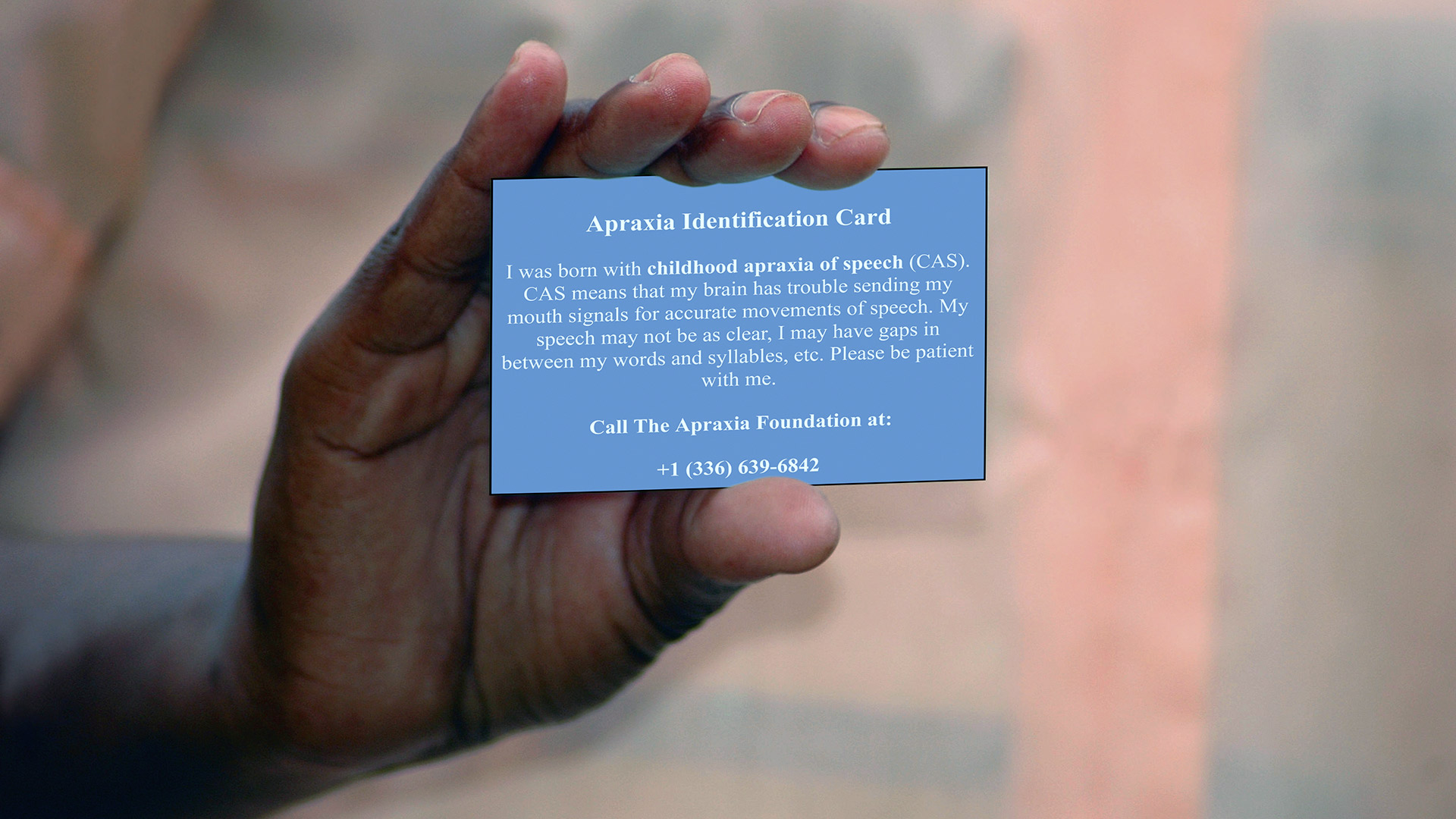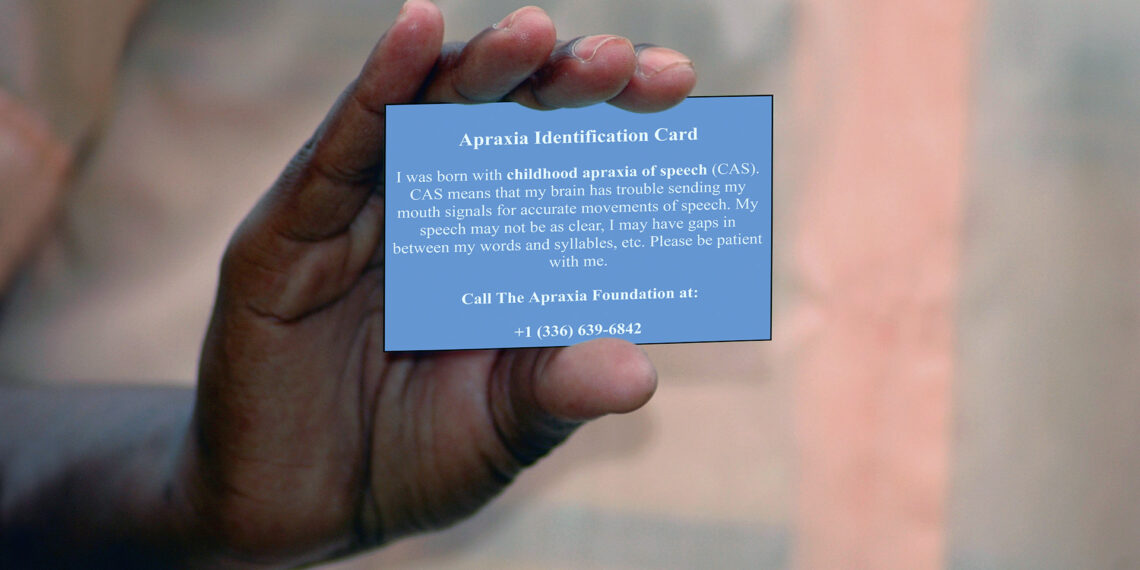[ad_1]
Campaign promotes communication between LEOs and people with speech difficulties

A new campaign by The Apraxia Foundation aims to make routine traffic stops and other interactions smoother and safer for both law enforcement officers and the public by raising awareness and facilitating communication.
As the foundation explains, verbal apraxia — also known as childhood apraxia of speech (CAS) — is a neurological speech–sound disorder that interferes with the brain sending the mouth signals to move the tongue, lips and jaw. Despite the word “childhood” in its name, the condition is lifelong. People who have it often experience difficulty articulating the words they want to say on command, which can cause them to pause when answering questions and can make their responses harder for others to understand. Stress and pressure can make speaking even more difficult for those with apraxia, all of which leads to challenges and misunderstandings in situations where they must interact with law enforcement.
“As an adult with verbal apraxia, police have questioned if I’m under the influence when I have been pulled over due to the slowness of my speech,” Jordan Christian LeVan, The Apraxia Foundation’s founder, said in a statement.
To help solve this problem, the organization has designed what it says is the country’s first apraxia identification card, inspired by diabetic alert bracelets and visor cards for people who are deaf or hard of hearing. Individuals with apraxia can print out the card and provide it along with their license and registration to immediately alert law enforcement officers to their speech difficulty if they are pulled over while driving or are otherwise stopped by police. Sized to fit easily in a driver’s wallet and be placed on top of the license for visibility in case of emergency, the cards include space for the person’s name and emergency contact, as well as a brief explanation of the effects of apraxia and the request “Please be patient with me.” The organization hopes that by helping law enforcement learn about apraxia, as well as helping people with apraxia convey information to officers clearly and easily through the use of the ID cards, the initiative will go a long way toward preventing miscommunications that could cause an interaction to escalate unnecessarily.
The apraxia identification cards are available for free online at theapraxiafoundation.org/id-cards. The organization is also working on window decals stating the driver has apraxia so officers can be forewarned as they approach the vehicle.
[ad_2]




